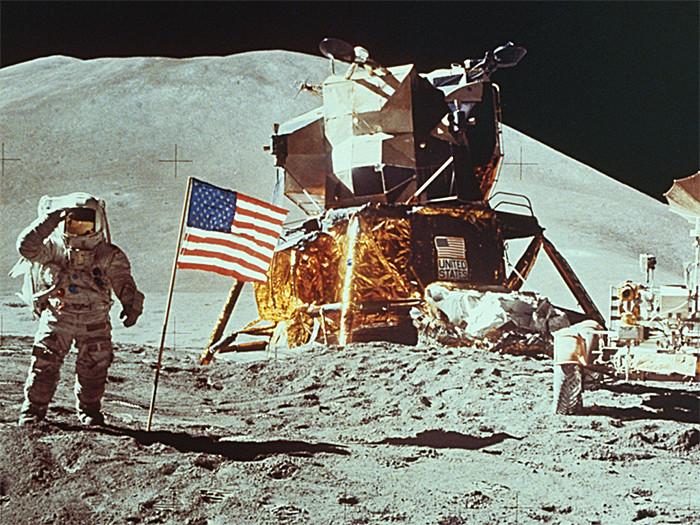Astronaut Neil Armstrong, the first man to land on the Moon, has passed way.
It’s sad to think that his most notable accomplishment turned out to be a dead end. Armstrong, who was 82, landed on the Moon during the first half of his life. Armstrong was just 38 when he walked on the Moon, and just 42 when the Moon landings ended. For almost half his life, he would never again see a human walk on the Moon.
Let’s hope that the next time humans visit the Moon, it will be done in a sustainable, affordable manner. Please note that won’t be done by government.
Prior to Apollo, Armstrong piloted the X-15 and was one of seven astronauts chosen to fly the US Air Force X-20 DynaSoar. If Apollo had been canceled while DynaSoar and the X-15 were sustained, perhaps we would have humans on the Moon today. Or perhaps not – sustainable economic development is still the key.


RIP Neil, my boyhood hero.
Fascinating how his first foot on the moon quote “That’s one small step for man, one giant leap for mankind.” has been repeated ad infinitum, without recognizing that it is (as it was communicated via radio) redundant — ‘man’ and mankind’, in context, are both plural nouns. Neil said once that he did indeed say ‘a man’ but somehow the word ‘a’ got dropped in the audio relay.
Also, your concluding comment that any return to the moon will not be done by government is a bit silly/unrealistic. Whether using existing (government funded) space crafts as staging areas (e.g., the ISS) or using existing (and tested) government technology and data (via NASA/NOAA/ESA satellites, for example), or ‘space junk’ tracking, avoidance and/or remediation technology…any future ‘citizen use of space’ will most assuredly utilize government expertise or involve government support (in some form).
And what is wrong with that? The government’s past/current/future exploration and use of space is/was enabled through taxpayer support…that’s us, the people. The fact that the government has not taken on the task of colonizing (or farming or exploiting) the moon has more to do with a lack of leadership and political support (buttressed by the demands of the people)…It’s about our spending priorities and overcoming entrenched interests…popular demand is not there yet, and, we have other emerging priorities, such as mitigating climate change, preserving ecosystems and insuring food/water security for over a billion people.
But regardless, even supposing some massive private sector push for a ‘moonrush’, you can bet that these private interests will be clamoring for government subsidies, tax breaks/incentives and low cost technology transfers/licensing, etc., much as private interests do today in other sectors of the economy (mining, energy exploration, etc.)
“your concluding comment that any return to the moon will not be done by government is a bit silly/unrealistic”
We didn’t say that “any return to the Moon will not be done by government.” We said that any sustainable, affordable return would not be done by government. You have to read all the words.
“Whether using existing (government funded) space crafts as staging areas (e.g., the ISS) or using existing (and tested) government technology and data (via NASA/NOAA/ESA satellites, for example), or ‘space junk’ tracking, avoidance and/or remediation technology…any future ‘citizen use of space’ will most assuredly utilize government expertise…”
Your point is? Our team includes a number of ex-USAF colonels, ex-Navy pilots, even an airline captain. That does not make us a military project, or even a commercial airline project.
Is a pilot who uses the government Air Traffic Control system engaged in government business?